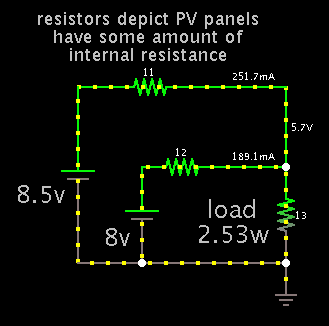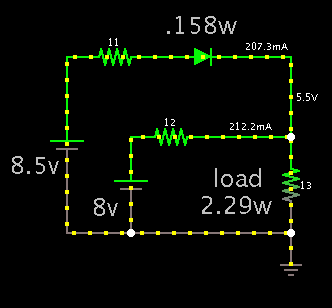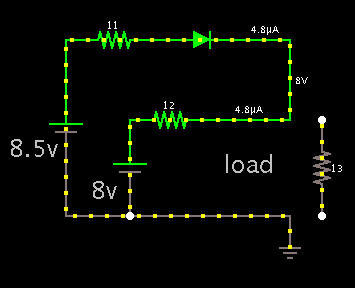navienavnav
Member level 1

I have two 5.5V 210 mA (under peak sunlight) solar panels which I bought off eBay just for fun. I wanted to connect these two in "parallel" to gain more current when both the panels are placed under the sun. But, let's suppose that one of the solar panel produces slightly less voltage than the other. In this case, the solar panel which is producing more voltage will instead force some current into the other solar panel, which won't be good and waste one solar panel's purpose. I thought of placing a blocking diode to prevent this reverse flow of current but it still is going to ruin the purpose of the parallel connection of the panels as the panel producing lower voltage will just be cut off (am i right?) due to the diode in such a case. Is there a simple (not involving complex ICs) way of still getting maximum current output from this setup? :razz:
Last edited:




